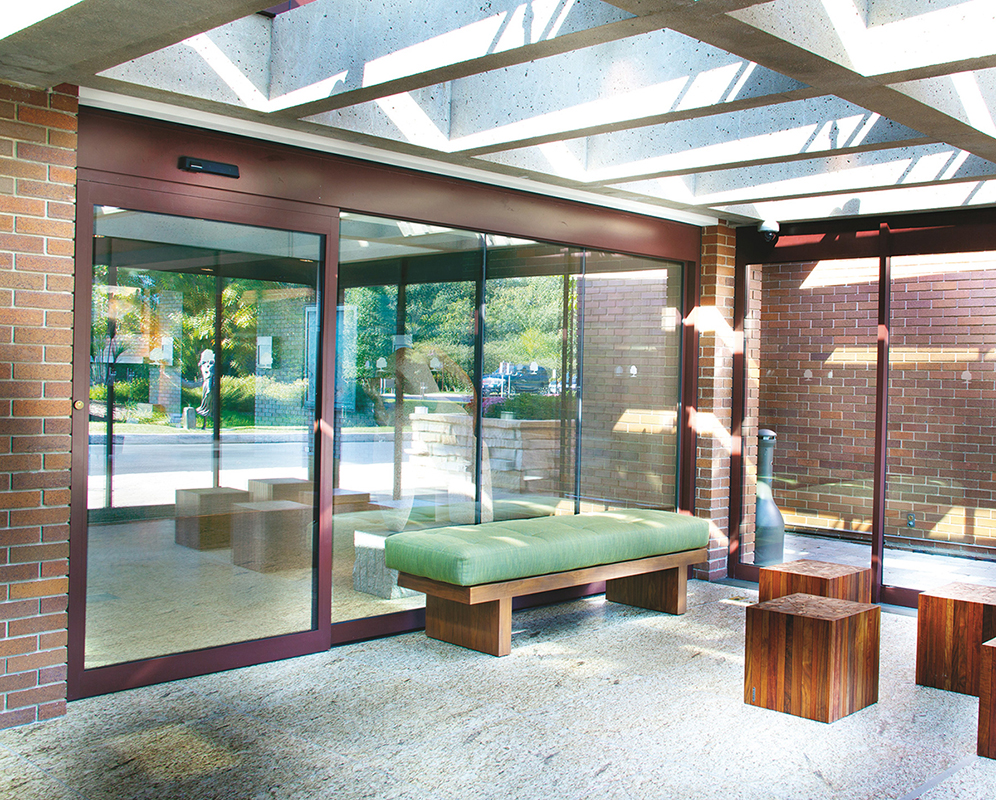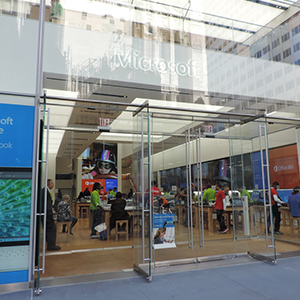When an automatic door malfunctions, business owners often ask the same question first: What is the average automatic door repair cost? The answer depends on several factors, including the type of repair, replacement parts, labor, travel expenses, and whether the call is scheduled or handled as an emergency. Knowing what drives costs—and how to minimize them—can help facility managers budget effectively while keeping their entryways safe, functional, and reliable.
Automatic Door Repair Cost: Common Price Ranges
Automatic door repair costs can vary widely depending on the system type (swing, sliding, or revolving) and the complexity of the repair. On average:
- Minor adjustments or recalibrations: $150 – $300
- Sensor replacements: $250 – $600
- Operator (motor/drive unit) repairs or replacements: $800 – $3,500
- Glass or frame replacement: $500 – $2,000+
- Track or roller repairs: $300 – $1,200
Labor charges typically run between $75 and $150 per hour, and many companies have a one- to two-hour minimum. Emergency service fees, if the door fails after hours or on weekends, can add $200 to $500 on top of standard costs.
Automatic Door Repair Cost for Sensors & Operators
Sensors are among the most common components needing service. Whether it’s a motion sensor that won’t detect traffic or a safety sensor that fails to stop the door from closing, replacement parts range between $100 and $400, with labor pushing the total repair closer to $250–$600.
Operators, which power the door’s motion, are more expensive. Replacing an operator or motor can cost anywhere from $1,000 to $3,500, depending on the door type and brand. Repairing an existing operator, such as replacing belts, relays, or circuit boards, generally costs $400–$1,200.
Automatic Door Repair Cost for Glass, Frames & Tracks
Doors with broken glass panels or damaged frames are usually pricier to repair due to material costs.
- Glass replacement: Standard tempered glass panels often cost $500–$1,200, while custom laminated or specialty glass can exceed $2,000.
- Frame repairs: Bent or dented aluminum frames may be straightened, but often require section replacement, running $400–$1,000.
- Tracks and rollers: Sliding doors rely on precise alignment and smooth track operation. Replacing rollers or track sections usually costs $300–$1,200, depending on system size and accessibility.
Automatic Door Repair Cost Drivers: Parts, Labor, Travel
Several variables determine the final bill for repairing an automatic door:
- Parts Pricing
Higher-end doors and brands often require proprietary parts that come at a premium. For example, specialized revolving door parts cost more than standard swing door components. - Labor Rates
Most technicians bill hourly, with metropolitan areas trending toward higher labor costs. Complex installations may require multiple technicians, further raising costs. - Travel Expenses
Service companies may add travel surcharges if your facility is located outside their standard coverage area. These fees typically range from $50 to $150, depending on distance.
Emergency vs Scheduled Repairs: When to Wait (and When Not To)
Not all door failures require immediate emergency service. Understanding when to wait can help control costs.
- When to Schedule Repairs
If your door is functional but noisy, slow, or occasionally sticking, scheduling during business hours is usually sufficient. This avoids emergency fees and allows for planned downtime. - When Emergency Service Is Essential
If your door poses a safety hazard—such as failing to stop when obstructed, not securing at night, or leaving a commercial entryway open—you should request emergency service. The added expense is justified to protect people, property, and business continuity.
How Maintenance Contracts Reduce Surprise Repairs
One of the best ways to minimize both repair costs and downtime is with a maintenance contract.
- Routine Inspections: Preventive maintenance identifies worn parts before they fail, reducing the likelihood of emergency service.
- Discounted Labor Rates: Many contracts include reduced labor costs for covered repairs.
- Priority Response: Contract customers often receive faster service when emergencies occur.
- Compliance Assurance: Regular maintenance helps ensure doors meet safety and accessibility codes.
While a maintenance contract typically costs $500 to $1,500 per year, it often pays for itself by preventing costly emergencies and extending equipment life.
Tips to Minimize Downtime and Repair Expenses
- Schedule Preventive Service every 6–12 months, especially for high-traffic entrances.
- Train staff on basic daily checks, such as ensuring tracks are clear of debris and sensors are unobstructed.
- Document recurring issues so technicians can diagnose underlying problems faster.
- Work with a trusted provider who understands your door brand and can source parts quickly.
Final Thoughts
The average automatic door repair cost ranges from a few hundred to several thousand dollars, depending on the nature of the repair. By understanding common cost drivers—parts, labor, travel, and emergency fees—you can make informed decisions about whether to schedule service or call for immediate help. More importantly, preventive maintenance can reduce surprises and keep your doors operating smoothly.
Contact Us Today
At Door Automation Corporation, we provide tailored solutions for convenient access to commercial spaces. Whether you need repairs for swing, slide, or revolving doors—or want to upgrade to non-contact entryways in response to COVID-19—our skilled professionals are ready to help. We work with industry-leading products, ensuring that your doors are not only functional but also secure and compliant with automated door energy standards.
Partner with us for reliable service, preventive maintenance, and expert design consultation. Contact us today to minimize downtime and keep your entryways performing at their best.




